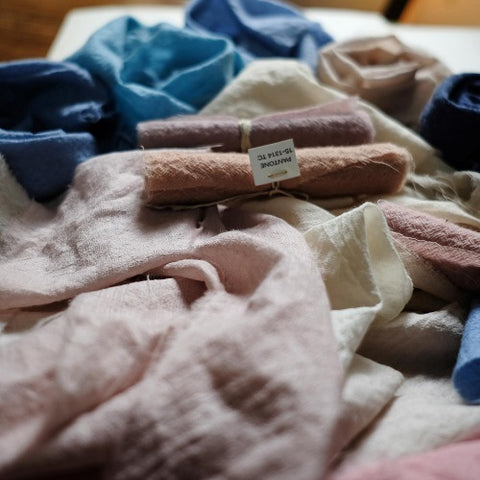#VocalForLocal: Eka's Ethos of Simplicity and Sustainability
Hinging on simplicity and fluidity, Rina Singh’s Eka embodies the notion of comfort and sustainability. By incorporating indigenous textiles crafted by local artisans into fusion styles, the brand has seamlessly bound Indian familiarity with global trends. Eka highlights the beauty in nativity – from West Bengal’s unique jamdani and tangail techniques to Amritsar’s jacquard looms. Rina Singh’s personal ethos of simple living is reflected through the brand’s contribution to the sustainable revolution and emphasis on local Indian craftsmanship.
With the growing trend of going local, we at Le Mill have chosen to extend our support to brands bringing India’s craftsmanship to the forefront. The growing need for aiding independent entrepreneurs whose business models champion sustainability and community growth is a prime example for translating the #VocalForLocal movement into a reality.



I have been inclined towards a bohemian-style of clothing for as long as I can remember, and was always drawn towards more earthy and natural textiles and fibres. I think I owe my personal inspiration to the environment in which I grew up – my family was hugely immersed in local crafts and fabrics – which ultimately served as my main influence. Even at wedding-like occasions where one would find the opportunity to dress up lavishly, I found myself gravitating towards simple chanderi’s. My idea of comfort lies in maxi dresses, tiered skirts or big shirts, and the way I fashioned Eka's clothing has certainly been a reflection of my love for such simplicity and fluidity.
Your brand is reflective of the push for sustainability in fashion. Why do you think there is a need to prioritise the idea of renewability in apparel?

Artisan working on the dye | Image credits - Keegan Crasto
Although ‘sustainability’ seems to have become somewhat of a buzzword in the fashion world, I believe that the time when we lacked awareness about it is when we were living in oblivion. So in that sense I feel the more, the merrier. For me, the idea of sustainability goes beyond my clothing brand and seeps into carving out a lifestyle that champions this ideal in every way possible. From the food that I eat to the experiences that I gather – the idea of sustainability is simply reflective of simple but refined living. In the last few years, the mass consumption of fast fashion has skyrocketed, leading to waste in abundance as these trends merely last one fashion season. This is why I feel that the push for sustainability is crucial – we need to look at fashion as a lifestyle cycle and not a temporary trend cycle. When we’re able to get over the surface idea of viewing clothing as a tool that is simply for the ‘wow’ or immediate head-turning moment is when we can collectively reduce the sheer unproductivity and wastage of clothes being manufactured in such a way.
To what extent did your upbringing have a role to play in your desire to incorporate sustainability in your brand?
I’d say my family certainly had a large role to play here. Hailing from an agricultural background, we lived a fairly frugal and simplistic lifestyle. However, there was always a deep appreciation for heirlooms and local textiles being woven by artisans in the area. The fabrics used to make carpets or saris were products of the crops we grew, and a lot of attention was paid to its creation and passing on to the next generation. My mother wears my grandmother’s pashmina, and the ideals of sustainability and care were passed on with these clothes – undeniably seeping into my line of work and the message I convey through Eka’s clothing.
Both your clothing style and sustainable message behind its creation echo the needs of new-age consumers. How do you think this demographic has changed the way we view the fashion industry?

I would say the thought process of the demographic has definitely changed. Both the new-age consumers that have educated themselves about sustainability, as well as consumers like myself – who have evolved through experiences of buying and travelling and have thus incorporated these new ideals while going along. There has been a unanimous acceptance across this demographic that where we come from is different from the rest of the world. Coming from India – a land with countless indigenous textiles and crafts – the ethos rests inside us and there is no option but to carry on such a rich legacy of fashion. The way kimonos are to Japan, underground punk grunge style is to the UK or haute couture is to Paris – I believe the legion of extraordinarily intricate fabrics and techniques are reflective of the Indian identity. The new-age consumer in our country embodies this individuality in style, and has managed to combine it with the sensibilities of the west and ideals of sustainability or eco-friendly apparel.
Channel your need for comfort and sustainability by shopping Eka’s latest collection here.












